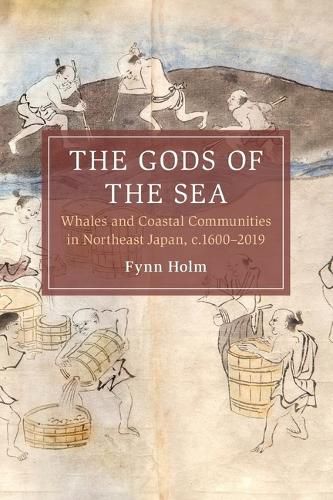Readings Newsletter
Become a Readings Member to make your shopping experience even easier.
Sign in or sign up for free!
You’re not far away from qualifying for FREE standard shipping within Australia
You’ve qualified for FREE standard shipping within Australia
The cart is loading…






Japan is often imagined as a nation with a long history of whaling. In this innovative new study, Fynn Holm argues that for centuries some regions in early modern Japan did not engage in whaling. In fact, they were actively opposed to it, even resorting to violence when whales were killed. Resistance against whaling was widespread especially in the Northeast among the Japanese fishermen who worshiped whales as the incarnation of Ebisu, the god of the sea. Holm argues that human interactions with whales were much more diverse than the basic hunter-prey relationship, as cetaceans played a pivotal role in proto-industrial fisheries. The advent of industrial whaling in the early twentieth century, however, destroyed this centuries-long equilibrium between humans and whales. In its place, communities in Northeast Japan invented a new whaling tradition, which has almost completely eclipsed older forms of human-whale interactions. This title is also available as Open Access.
$9.00 standard shipping within Australia
FREE standard shipping within Australia for orders over $100.00
Express & International shipping calculated at checkout
Japan is often imagined as a nation with a long history of whaling. In this innovative new study, Fynn Holm argues that for centuries some regions in early modern Japan did not engage in whaling. In fact, they were actively opposed to it, even resorting to violence when whales were killed. Resistance against whaling was widespread especially in the Northeast among the Japanese fishermen who worshiped whales as the incarnation of Ebisu, the god of the sea. Holm argues that human interactions with whales were much more diverse than the basic hunter-prey relationship, as cetaceans played a pivotal role in proto-industrial fisheries. The advent of industrial whaling in the early twentieth century, however, destroyed this centuries-long equilibrium between humans and whales. In its place, communities in Northeast Japan invented a new whaling tradition, which has almost completely eclipsed older forms of human-whale interactions. This title is also available as Open Access.